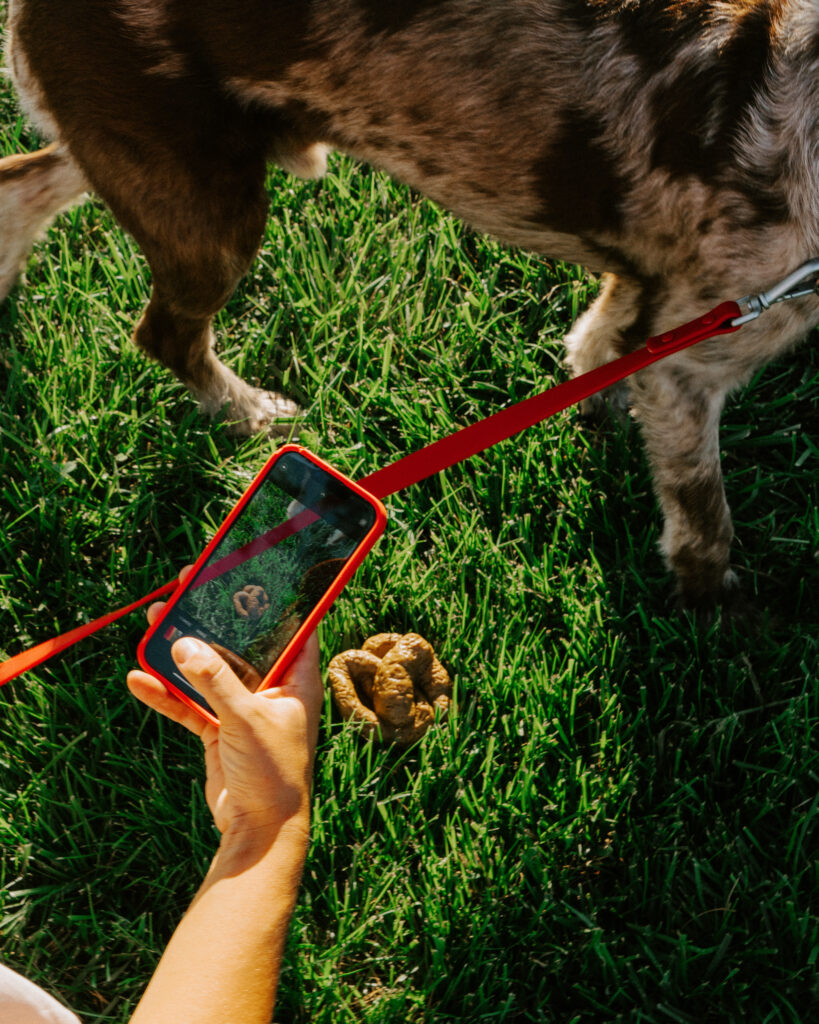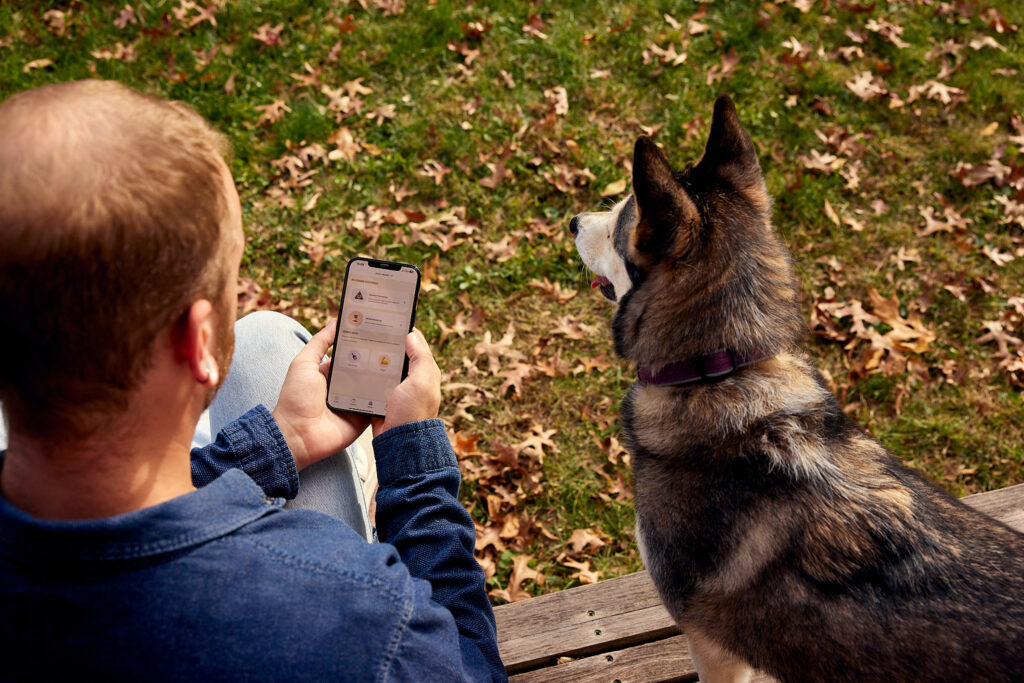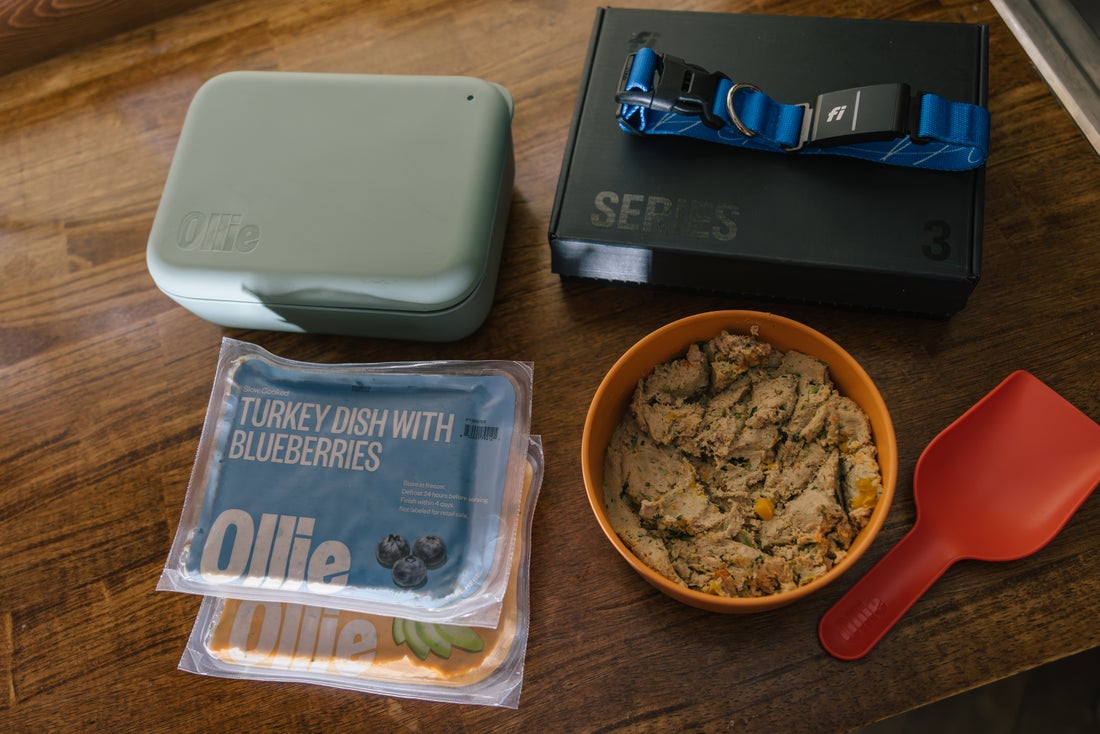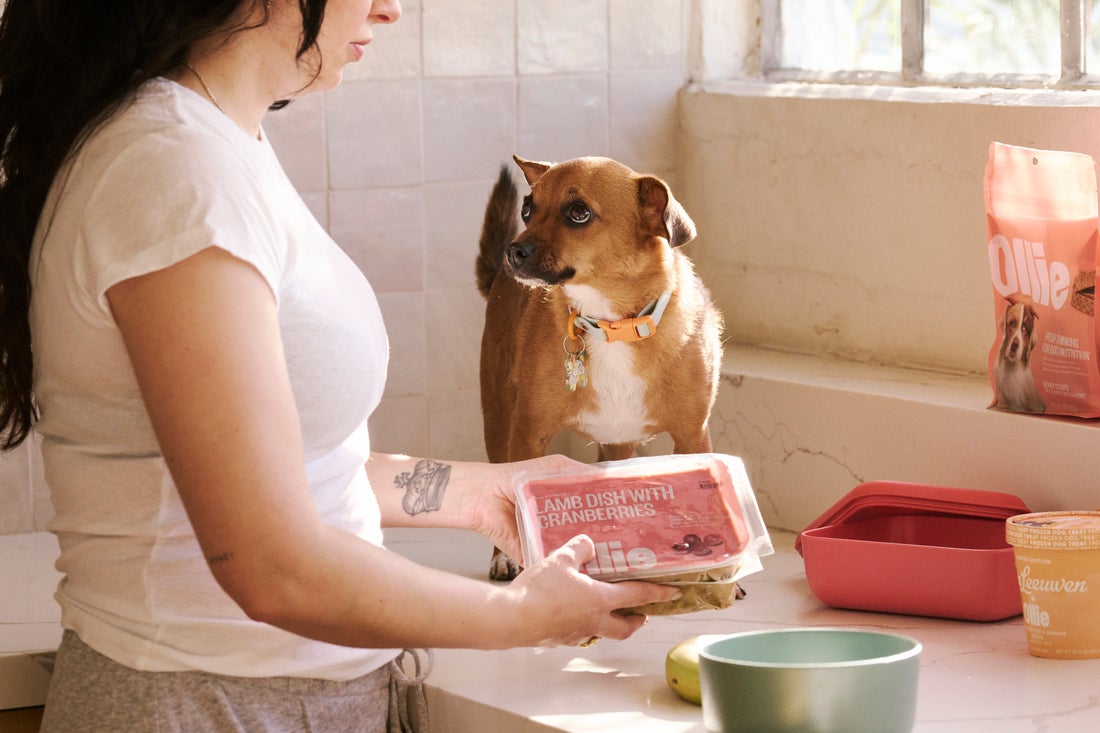Hey Ollie blog readers! We’re offering you an exclusive 60% OFF your starter box! Try now!
As pup parents, we spend a lot of time handling dog poop, and as a key indicator of a dog’s health, it’s only fitting that we think and talk about it just as much. Unfortunately, what happens at the dog park doesn’t always stay there, and what you may think you know about your dog’s digestive health may actually be a load of…fiction. So, today, we’re debunking the myths and common misconceptions around everyone’s favorite topic: poop.

MYTH: If my dog is pooping consistently, everything’s OK.
While regular pooping is a good sign, it’s not the only indicator of digestive health. You should also monitor:
- Stool consistency, color, and volume
- Presence of mucus, undigested food, or foreign materials
- Frequency changes, straining, or signs of discomfort
These details can help detect issues like food intolerances, GI inflammation, or nutrient malabsorption—well before other symptoms appear.
MYTH: Kibble is as easy to digest as fresh food
Kibble often contains processed ingredients, fillers, and low moisture, which can slow digestion. Fresh food tends to be more bioavailable—meaning nutrients are easier to absorb. However, digestibility also depends on the specific formulation and ingredient quality of either option.
MYTH: Finding vegetable pieces in stool is a sign of improper digestion
Not necessarily. Dogs lack certain enzymes to break down plant cell walls, especially insoluble fiber (like in carrots or corn kernels). Small visible bits in stool can be normal, particularly from raw or minimally processed veggies. However, excessive undigested matter could signal a need for:
- Improved digestive enzyme support
- Investigation into malabsorption
MYTH: Mucus in poop is always a bad sign
Not always. A small amount of mucus can be normal—it helps lubricate the colon. However, persistent or excessive mucus—especially with diarrhea, blood, or straining—may indicate:
- Inflammation (colitis)
- Gut microbiome imbalance
- Food allergies or parasites
- Veterinary evaluation is warranted if mucus is frequent or accompanied by other symptoms.
MYTH: Small poops are a sign my dog isn’t eating enough
This is misleading. Smaller poops can actually be a sign of high nutrient absorption and food efficiency (common with fresh or raw diets). Larger poops, particularly if frequent and bulky, may indicate that the food has high filler content or low digestibility. It’s less about volume and more about quality, consistency, and overall GI health.
MYTH: All food transitions cause diarrhea
Not true. Diarrhea is common during abrupt changes, but well-managed transitions (over 7–10 days) often prevent issues. Signs of diarrhea during transition could also point to:
- Ingredient intolerance
- Sensitivity to fat or fiber changes
- Underlying GI imbalance
A gradual approach and selecting digestible, high-quality ingredients are key to smoother transitions.

Hopefully, you learned a thing or two about your pup’s number twos and what you should be looking for when monitoring their digestive health. If you ever have any doubts or want an expert opinion, the Ollie Health team is just a couple of clicks away. Our Digestion and Diet Transition Screenings put the expertise of vet professionals in the palm of your hand, giving you clear and actionable guidance from a single photo of your pup’s poop.
All of our Health Screenings are available exclusively in the Ollie app for free with your Ollie membership. Download the app from the Apple or Google Play stores to start a screening now, or join the Ollie pack to see the difference fresh food can make for your pup’s digestion and so much more!
Tagged As:

The nutrition your dog needs,
the food they want.

Enjoying our articles? Subscribe our Newsletters and get new articles directly to your inbox
You might also like
18 September 2025
5 MINS READ
Can I Rotate Fresh Dog Food Flavors?
Yes, it’s safe to rotate fresh dog food flavors, and many dogs actually benefit from the variety. At Ollie, we offer multiple fresh recipes, like Beef, Chicken, Turkey, Lamb, and Pork so you can…
by Ollie Pets
18 September 2025
5 MINS READ
Is Fresh Dog Food Safe During Power Outages?
Fresh dog food is only safe during a power outage if it has stayed cold, specifically, below 40°F. Once the temperature rises above that point, bacteria can start to grow, and the food may no lon…
by Ollie Pets
18 September 2025
5 MINS READ
How Do I Store Fresh Dog Food While Traveling?
If you’re bringing fresh dog food on the road, keeping it cold is key. The best way to store it is in a cooler with ice packs or a travel freezer. At Ollie, our vacuum-sealed fresh food stays good…
by Ollie Pets







